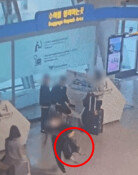Gov't announces enforcement ordinances of the anti-corruption act
Gov't announces enforcement ordinances of the anti-corruption act
Posted May. 10, 2016 07:29,
Updated May. 10, 2016 07:37
Public servants, school faculty, journalists and media personnel will be subject to fines if they were treated a meal costing more than 30,000 won (25.66 U.S. dollars) from a work-related counterpart. Receiving gifts of more than 50,000 won (42.77 dollars) in value and gift money of more than 100,000 won (85.54 dollars) for family events will be banned as well.
South Korea’s civil rights panel announced the so-called Kim Young-ran Law against illegal solicitations and bribery on Monday. The panel has decided to issue an advance notice of the legislation on Friday and hold a number of hearings for another 40 days. The legislation is scheduled to be enforced from September 28, after going through a series of additional review including regulation reform review, legislation review, and cabinet meeting review.
The limitation for the cost of graft meals stayed the same as stipulated in the current code of conduct for civil servants. Meanwhile, the amount allowed for exchanging gift money for family events, a traditional custom in Korean society, would be doubled from 50,000 won (42.77 dollars) to 100,000 won (85.54 dollars). The existing code of conduct banned receiving any gift altogether, but a cap of 50,000 won (42.77 dollars) would be newly imposed by the legislation.
A standard for giving work-related lectures to external institutions was newly set up. The maximum hourly lecture fee would be 500,000 won (427.7 dollars) for ministers and the equivalent, 400,000 won (342.17 dollars) for vice ministers, and 300,000 won (256.6 dollars) for officials grade 4 and higher. Journalists and private school faculty members would be able to receive up to 1 million won (8,554.32 dollars).
The Kim Young-ran Law, which passed the congress in August 2012, is now close to enforcement after long controversy. In July 2014, President Park Geun-hye officially urged the National Assembly for its passage, calling it “a first step for public safety and national reform.” After that, the Act expanded its subjects to include private school faculty and media personnel. There has been criticism that the Act has not fulfilled its initial intentions by removing articles related to preventing conflict of interests and lawmakers from the subject list.
우경임기자 woohaha@donga.com







